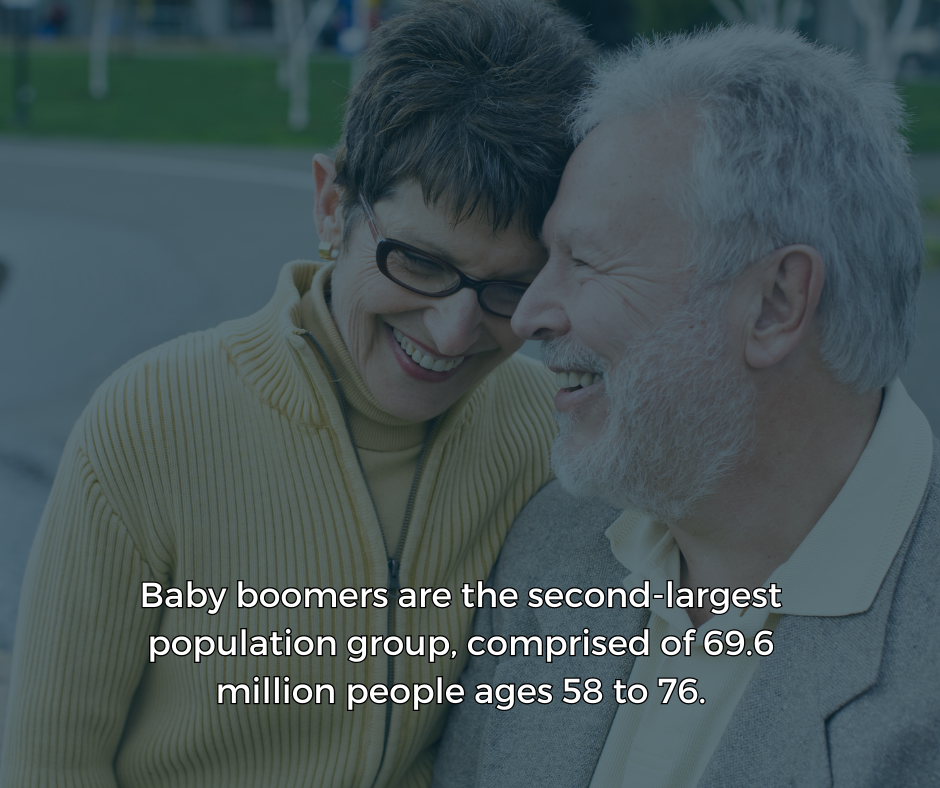
Subscribe to our newsletter!
We don't spam. You will only receive relevant and important tips for you and your business.
Unsubscribe anytime.
By Jaquie
As a small business owner, you understand the importance of providing excellent customer service. Happy customers are more likely to return and recommend your business to others. But have you considered the impact of multigenerational customer service on your bottom line?

With five generations currently in the workforce and marketplace, it's more important than ever to understand how to connect with customers of all ages. Let’s explore the importance of multigenerational customer service, how to do it right, and why it's worth the effort.
First, let's talk about why multigenerational customer service matters. Each generation has its own unique characteristics and preferences, which can impact how they want to be treated as customers.
For example, Baby Boomers (born between 1946-1964) tend to value personal interactions and are less likely to embrace technology. They may prefer to speak with a customer service representative on the phone or in person rather than using an online chatbot.

If your business caters to a specific age group, such as a retirement community, you may be able to focus your customer service efforts on one or two generations. However, if you serve a diverse customer base, it's essential to understand the preferences and needs of each generation to provide excellent customer service to everyone.
In addition, providing multigenerational customer service can help you stand out from your competitors. Many businesses still approach customer service with a one-size-fits-all mentality, which can lead to frustration for customers who don't fit the mold. By embracing multigenerational customer service, you can differentiate yourself and build a loyal customer base across generations.
Now that you understand why multigenerational customer service matters, let's talk about how to do it right. Here are some tips to help you connect with customers of all ages:
Understand the preferences of each generation As mentioned earlier, each generation has its own unique characteristics and preferences. Take the time to research and understand the needs of your target customer base. This can include everything from communication preferences to product and service expectations.
Offer multiple communication channels Some customers may prefer to call your business, while others may prefer to send an email or use an online chatbot. Make sure you offer multiple communication channels to accommodate everyone. This can include phone, email, live chat, social media, and even text messaging.
Train your customer service team Your customer service team should be trained to understand the preferences of each generation and adapt to their communication style accordingly. This can include using more formal language with older customers and using emojis and casual language with younger customers.

Personalize your interactions Customers of all ages appreciate personalized service. Take the time to learn your customers' names, preferences, and purchase history. Use this information to provide personalized recommendations and create a more enjoyable customer experience.
Ask for feedback Finally, ask for feedback from your customers of all ages. This can help you identify areas where you can improve your customer service and make adjustments to better meet their needs. Use customer surveys, online reviews, and social media to gather feedback and respond to any concerns or complaints in a timely manner.
Providing excellent customer service to customers of all ages may require more effort and resources on your part, but it's worth it in the long run. Here are some reasons why:
Increases customer loyalty When customers feel valued and appreciated, they are more likely to return and recommend your business to others. By providing multigenerational customer service, you can build a loyal customer base across generations.
Boosts your reputation Word of mouth is a powerful marketing tool, and providing excellent customer service can help boost your reputation. When customers have a positive experience with your business, they are more likely to share their experience with others.

Improves customer retention Acquiring a new customer can cost five times more than retaining an existing customer. By providing excellent customer service, you can improve customer retention and reduce the costs associated with acquiring new customers.
In today's marketplace, providing multigenerational customer service is more important than ever. By understanding the preferences and needs of each generation, offering multiple communication channels, training your customer service team, embracing technology, personalizing your interactions, and asking for feedback, you can provide excellent customer service to customers of all ages.
The effort you put into providing multigenerational customer service can pay off in many ways, including increased customer loyalty, a better reputation, a competitive advantage, and improved customer retention. So, take the time to understand your customers of all ages and adapt your customer service approach to meet their needs. Your customers will thank you for it, and your business will reap the benefits.
Ready to build a loyal customer base across generations?